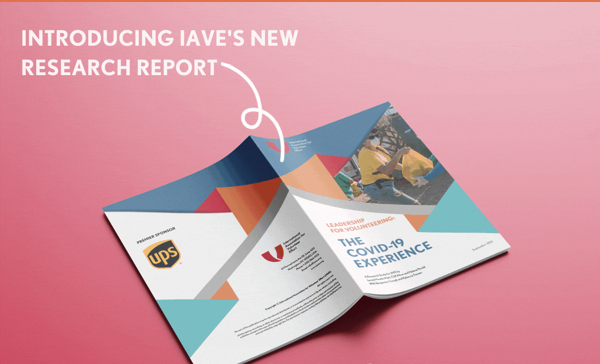We are excited to announce the launch of our research on Leadership for Volunteering: The COVID-19 Experience. The research study was commissioned by IAVE to create a body of knowledge about the experience of national volunteering leadership organizations in responding to the COVID-19 pandemic.
Since early 2020 disruptions caused by the COVID-19 pandemic have added significant strain to a host of human development challenges across the globe. These have been most acute in countries where states lack adequate capacity to deal with this public health emergency and to cushion citizens from the associated economic impact. We have also witnessed a massive loss of life in many parts of the developed world where ideological muddling, misinformation and disinformation have rendered impotent the state’s capacity to contain the pandemic.
Despite the vast experience that VIOs have gained in the face of natural disasters, incidents of mass violence, and infectious disease outbreaks over many years, COVID-19 has exposed these organizations to a new and frightening set of realities on a global scale not previously experienced. How well volunteer effort intervenes and responds to this pandemic is dependent on a number of factors such as strategic leadership capacity, organizational and sectoral capacity, and resourcing and relationships. In this context, national volunteering leadership organizations (VLOs) are an increasingly important asset in supporting and developing the global volunteer movement to meet current and future challenges. This new reality has raised several volunteer development and managerial questions about VLO interventions in the COVID-19 pandemic.
Gathering insights from 70 respondents across 67 countries, the report examines how COVID-19 has impacted on the strategic leadership role of national volunteering leadership organizations (VLOs) in advocacy, development and volunteer mobilization.The research report examines how COVID-19 has impacted on the strategic leadership role of national volunteering leadership organizations (VLOs) in advocacy, development and volunteer mobilization. It also considers what this means for VLOs and the future of volunteering.

